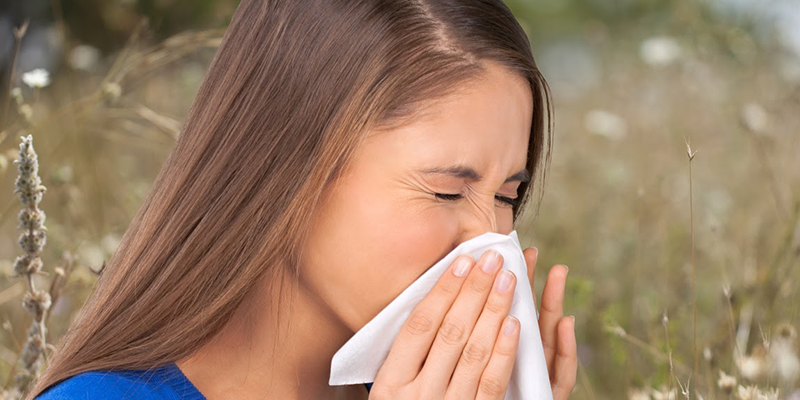Allergic Rhinitis and the Fall; With the fall, the complaints of patients with allergic rhinitis will increase. The pollen counts decrease at the end of June, but they do not end completely and keep causing complaints. Grass pollens emerges at the end of August and continue exists until mid-November.
Considering that grass-pollen allergy is common in the society, we can say that the fall season will not be easy for patients with allergic rhinitis and the fall.
So, what are the points to take into consideration for being able to be protected and experience fewer complaints?
The patient should begin to be protected from pollen as of the end of August. Bedroom windows should not be opened in the morning, because pollen counts in the air are highest in the morning hours. Grass pollen entering through windows can cause complaints all night.
The patient should apply the nasal spray before getting out of the house and avoid spending much time outside, especially on windy days. Green areas selected as the places to visit on weekends increase the complaints, as well. It is not appropriate to stay close to newly mown grass and to spend time on grass.
In the forest and woodlands, only tree pollen counts are high but there will be a high level of cross-reaction between pollens; so the pollens in these areas will cause as much complaints as grass pollens do. Spending time in such places should be avoided as much as possible.
If people have been exposed to pollen in some way, they should not enter the bedroom with their clothes, which should be taken off and shaken at the entrance of the house so that the pollen load on them is eliminated.
Then, if the conditions and environment allow, children should take a shower, and if it is not possible, they should wash their faces with plenty of soapy water, comb their hair with a wet comb, and clean their nose with plenty of water in the sink. Thus, the pollen load on the body can be removed.
Insect and bee stings are another risk that patients with allergic rhinitis should be careful about in the fall. Allergic patients may be highly affected by insect and bee stings, which may even require emergency action. Protection is important at this point.
For this reason, light-colored clothing should be preferred, food and beverages should not be left out, and if an insect or bee sting is encountered despite all precautions, they should be kept under control and a health care provider should be consulted if necessary.
Lastly, patients with allergic rhinitis should always have their medication with them and use them when necessary.

